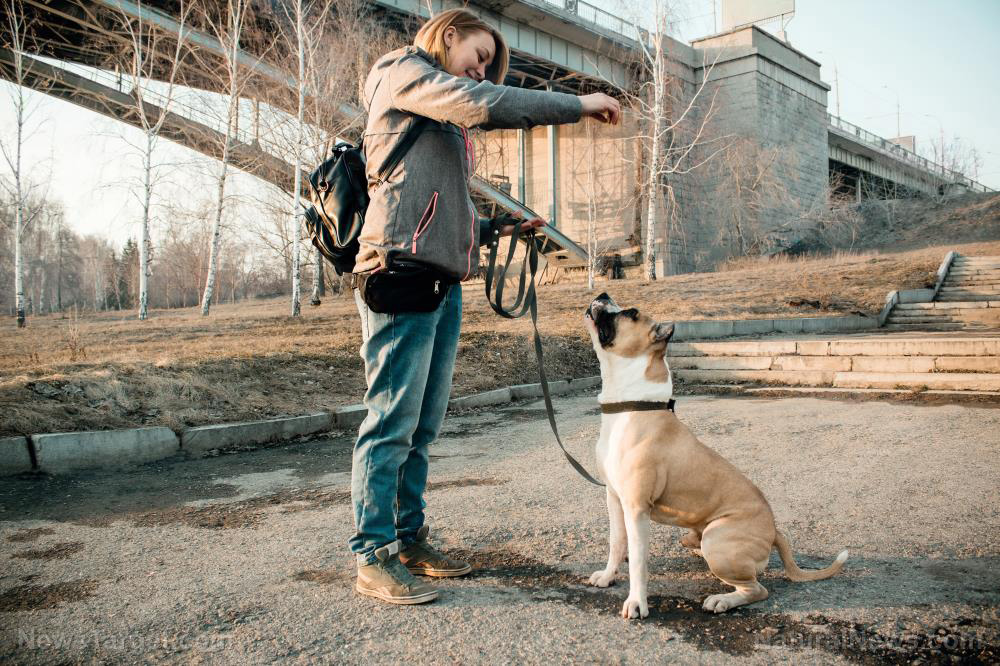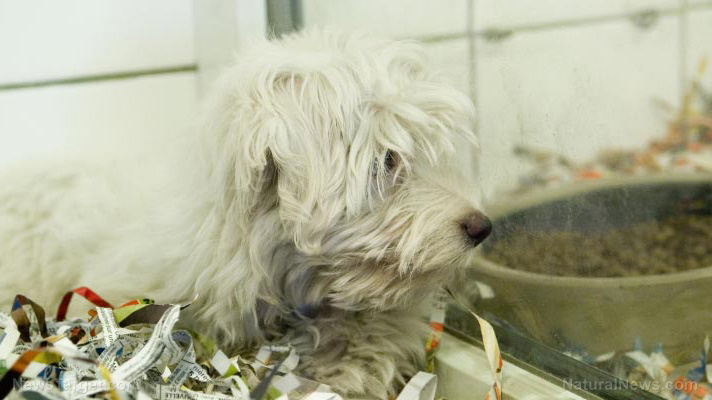Study suggests dogs bring people closer, help humans get along better
03/19/2019 / By Amy Goodrich

Have you heard about the new trend among millennials to bring their furry companion to work to promote positive work environments? It is actually more than just a trend; it’s science. Researchers at Central Michigan University found that having a dog in the office may increase productivity, workplace happiness, and trust among group members. And who doesn’t want to work in an office with healthier and happier people?
Dogs can lift our mood, improve happiness, reduce stress, and boost productivity. While they seem the perfect fit for any office, most business owners, however, aren’t too keen on the idea.
Of course, they might be right in their decision against having pooches in the office since there are plenty of reasons your boss might be skeptical of joining the in-office dog trend. Some environments such as restaurants and grocery stores are just not fit for a dog. Also, some dogs don’t behave properly, and employees may be allergic to dogs or simply don’t like or feel comfortable having a four-legged creature around.
Although there are drawbacks and we shouldn’t just start bringing dogs into every workplace, if you are a company owner it is worth it to look at the benefits and consider the idea of welcoming furry friends into the workplace.
Pet-friendly workplaces can do wonders for the company
For their study, the research team had small groups complete short tasks with or without a dog in the room. The creativity and cooperation involving tasks included generating a 15-second ad and slogan for a fictional project or playing a modified version of the prisoner’s dilemma game. All the group interactions were videotaped to see whether having a dog present in the room affected the outcomes.
Participants who were in a room with a dog all expressed feelings of satisfaction and greater trust between group members. After independent raters had analyzed the tapes, it turned out that in-office pets improved positive vibes and verbal and physical signs of closeness, as well as improved collaborations and teamwork.
“When people work in teams, the presence of a dog seems to act as a social lubricant,” lead author Steve Colarelli commented. “Dogs seem to be beneficial to the social interactions of teams.”
While the small experiments didn’t show any impact on performance, Colarelli believes that the improved social and emotional benefits of a team could have a significant impact on group performance over time.
“In a situation where people are working together for a long period of time, how well the team gets along — do they speak together, have rapport, act cooperatively, help one another — could influence the outcome of the team, then I suspect a dog would have a positive impact,” he said.
With a growing body of research suggesting that a dog-friendly office increases kind and helpful behavior in groups while reducing stress levels, it seems that having a dog around can do wonders for the team and company.
The outcome of these experiments may not come as a big surprise to most pet owners since they know that having animals nearby just makes us happier and nicer people. If your boss is not wild about the idea of opening his doors to pets, this study may change his mind.
Because of all the reported benefits – reduced stress, improved job satisfaction, better teamwork, healthier employees, and increased productivity – of having animals or natural elements in the workplace, employers may just broaden their horizons and give this new trend their trust.
Of course, don’t forget that not everyone will embrace the thought of having a dog in the office. However, other natural elements – such as perking up the office environment with more sunlight, flowers, or plants – may have a similar impact, according to a previous survey conducted by the researchers.
PetHealthDaily.com is your source of all news and studies about pets and how they make our lives better.
Sources include:
Tagged Under: dog-friendly, dog-friendly office, dogs, happiness, In-office dog, office, stress relief, teamwork, trend, workplace

















